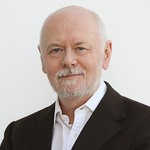Blog
From the Editor's Desk (April 2013)
30 April 2013
Tony Addison
As April closes, our thoughts turn to UNU-WIDER’s spring/summer programme. And it’s a busy one. June sees us back in Stockholm, this time to talk about aid, climate change and the environment at the ReCom results meeting. There is also our big Learning to Compete conference, bringing together a wide range of policy makers and researchers. And not forgetting the UNU panel at the Bonn Global Media forum.
Meanwhile, publication continues unabated. April saw the launch of Pathways to Industrialization in the Twenty-First Century, edited by Adam Szirmai, Wim Naudé, and Ludovico Alcorta, and published by Oxford University Press for UNU-WIDER. The launch took place on 11th April as part of a panel discussion to a packed house at the London School of Economics. This follows the launch on 18th March, within the framework of the annual conference of CSAE in Oxford, of Development Success: Strategies and Lessons from More Advanced Countries and the Developing World, edited by Augustin Fosu, and also published by Oxford University Press for UNU-WIDER. We also have a new UNU-WIDER special issue of the Journal of Conflict Resolution on entrepreneurship and conflict, edited by Tilman Brück, Wim Naudé and Philip Verwimp. And there are enough new working papers to satisfy most tastes and preferences, ranging across such topics as: employment in Mozambique; infrastructure and climate change; food price policy in China; aid for agriculture and rural development; anti-poverty transfer programmes; taxation and development; and experimental versus non-experimental methods in development economics.
Turning to our April Angle we continue with the series on the MDG post-2015 development agenda. We are very pleased to welcome Norway’s Minister for International Development, Heikki Eidsvoll Holmås, to GUESTAngle. He argues persuasively that growth on its own will not get us as far as we want in poverty reduction. Reflecting on Norway’s success, and its lessons for resource-rich countries, Minister Holmås concludes that it is human capital not natural capital that ultimately drives development: ‘our investments in the education of girls and women and childcare have proved more valuable for society than our oil production’.
Our second GUESTAngle is by Marikki Stocchetti, from the Finnish Institute of International Affairs. She argues that the post-2015 development debate is still too polarized, and that the very poorest will not share in development success while this remains so. This is an important message to those engaged in the process leading up to 2015 and beyond.
You can still read previous contributions on the post-2015 agenda. These include Christian Friis Bach, Denmark’s Minister for Development Cooperation, and Heidi Hautala, Finland’s Minister for International Development. Other perspectives come from Finn Tarp, UNU-WIDER’s director, as well as Rachel Gisselquist a UNU-WIDER research fellow, working on aid, governance and fragility under ReCom.
The social sectors, especially primary education and basic health care, have of course been central to the progress made on the MDGs since the Millennium. In Angle this month, my colleague Miguel Niño-Zarazúa (who leads on UNU-WIDER’s work on aid and the social sectors) and I reflect on lessons learnt from the successful ReCom results meeting on ‘aid and the social sectors’, which took place at Sida in Stockholm on 13th March. You can see more on this event, including videos, here. Do join us via web cast for the 4th June ReCom results meeting on aid, environment and climate change, if you can’t make the meeting in person at Sida in Stockholm.
Relevant working paper series for ReCom on aid and the social sectors are now appearing: see P.B. Anand on aid for water and sanitation, Kassandra Birchler and Katharina Michaelowa on aid and education, and Iara Costa Leite, Bianca Suyama and Melissa Pomeroy on Africa-Brazil co-operation in social protection (to name only three). There are also briefing papers that summarise the main findings of the aid and social sector work so far.
Our VIDEOAngle for April is from the Stockholm ReCom meeting. Katharina Michaelowa, Abby Riddel and Bob Baulch present their findings on aid effectiveness and education trying to answer the complex questions of what has worked and . We now have many more videos online; you can catch them here.
RESEARCHAngle this month covers issues around the social sectors and aid effectiveness. The research brief based on the WIDER Working Paper by Abby Riddell argues that whilst the international community knows how to make education aid more effective, the lessons are too often ignored. Kassandra Birchler and Katharina Michaelowa find that high levels of education aid in the last decades concentrating on school enrolment have resulted in more children going to school. The challenge for the years to come is how to improve the quality of instruction as well. Armando Barrientos and Juan M. Villa look at the role of evaluations in the rise of social protection programmes in Latin America, and with respect to the muted response to social protection in the African context.
There are more briefing papers that summarise the main findings of the ReCom project so far.
With the Vappu (May Day) holiday celebrating the end of winter almost upon us we look forward to warmer and longer days. With UNU-WIDER as busy as ever, Angle returns in May.
Tony Addison is Chief Economist-Deputy Director, UNU-WIDER
WIDERAngle newsletter
April 2013
ISSN 1238-9544
 Join the network
Join the network

